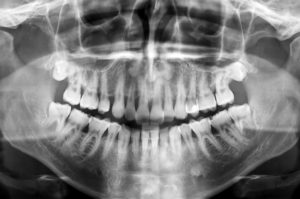Brushing your teeth is the most important, and most basic part of oral hygiene. It helps you fight against plaque build up, and reduces the risk of gum disease and infection. It’s well established that oral health has a significant effect on your general health as well.
You can’t clean with a dirty brush…
It just makes common sense. Over time, microorganisms can collect on the bristles. Those microorganisms may even come from the area where you store your toothbrush. The bristles also become worn down and/or misshapen, so your brushing becomes less effective.
So, how often should you make the switch to a new toothbrush?
• The general rule of thumb is—change them every three to four months.
• Change it more often if you notice the bristles are bending or deteriorating in any way.
What happens when you get sick?
The most recent research hasn’t shown a significant risk of getting sick again with an infection when you continue to use the same toothbrush through the illness and after. So, you probably can’t reinfect yourself with your own cold or flu. There’s no harm, however, in getting a new one at any time.
Tips for general care
To get the most out of your toothbrush, there are some tips to follow. The same advice applies to both a manual toothbrush, and an electric toothbrush head.
• Don’t share your toothbrush. This pretty much goes without saying, but we’ll emphasize it anyway.
• Rinse your toothbrush out thoroughly after each time you brush.
• Store it preferably in an upright position, where the bristles can properly dry out.
• Do not store your toothbrush in a closed container unless it’s briefly while you’re travelling. When you travel, be sure to get it out of that travel case as soon as you can.
• Be aware of where you store your toothbrush. When you keep it in a cup, for example, you will find that the inside bottom of the cup can get contaminated pretty quickly. The best solution is to let them hang from a rack to dry.
• Many dentists recommend having two toothbrushes on the go at any given time, alternating between one and the other. That gives each one adequate time to dry in between.
In general, the microorganisms that may gather on your toothbrush are anaerobic. That means that they will die when exposed to air. That’s why it’s so important to make sure your toothbrush can dry out after you brush.
It’s individual
Just how long your brush will last will vary from person to person. The shape and condition of your teeth will wear on the bristles in varying ways. If you have any questions about your toothbrush or dental hygiene, your dentist is the right person to ask. Looking for advice on any area of your dental health to focus on? You’ll find the answer at Dr. F. Keshavarz Dentistry in Brampton, ON.
If you’re looking for a well-regarded and highly skilled dentist in the Brampton area, make an appointment with Dr. F. Keshavarz Dentistry by calling (905)-791-3867.







